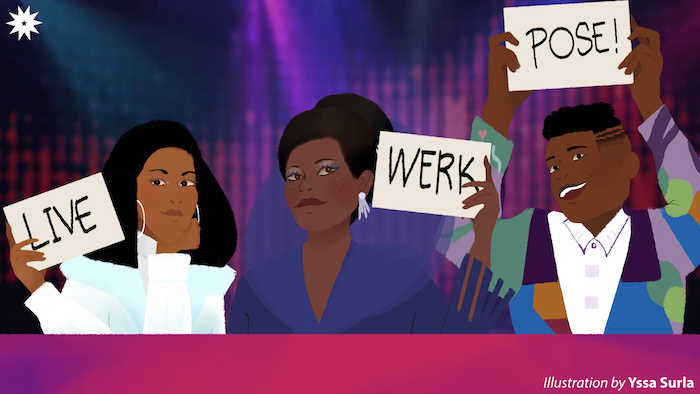
Ryan Murphy’s Pose shone a spotlight on New York’s shimmering underground ballroom scene, as it reclaimed the once-forgotten queer culture. With transgender women of color front and center, Pose reminded us that when love is lost from the houses we call home, some people get to choose their family in the oddest of places—in the streets, in the piers, and even underground.
From being a humble introduction to ballroom culture, Pose’s third and last season ups the stakes as we witness our beloved queens survive the late 80s AIDS scare amid fear, hate, and injustice.
More, more, more!
Season three starts off with a four-year time jump that finds Blanca Evangelista (Mj Rodriguez) in a much better place in life. She has now recovered from complications of AIDS and frolicking with her “ride-or-die” lover that seems to be all too perfect given her struggles in the past.
In contrast, Billy Porter’s Pray Tell copes with his imminent death through alcoholism. Porter brings intensity and nuance as Pray Tell comes to terms with the legacy he will leave, leading to many emotional scenes with his co-stars. Dominique Jackson’s venomous Elektra is also back and better than ever with her iconic cut-throat reads and emotionally empowering speeches.
Despite Damon’s (Ryan Jamaal Swain) unexpected exit after the first episode, the rest of the cast returns for a strong last season. With the plot focusing more on other characters, it is satisfying to see Indya Moore, Angel Bismark Curiel, Hailie Sahar, and Dyllón Burnside complete their story arcs. As Pose is known to have the biggest transgender cast on television, it doesn’t disappoint in its genuine portrayal of queer experiences.
Deeper love
As our characters explore their newfound liberty, their defiance is fiercely reflected in the characters’ outfits. Although some pieces may look over-the-top considering the characters’ struggles and the time periods explored in the film, Pose’s costume designer Analucia McGorty manages to showcase the magnificent fantasy of what ballroom culture meant to the community. Exchanging its accuracy for a little more glamor for the sake of delivering a narrative is a small price to pay.
As we witness the characters walk categories of businesswoman, vogue model, and bride, they reclaim the roles that have once excluded them. One of the highlights of the season is the theatrical wedding between Angel and Papi, proving once more that love is for all—and if other TV series can have their big fairytale wedding episode, so can the queer community.
Ain’t no mountain high enough
The season upscales its stories by showing the intersectional issues faces by queer people of color. Pose has always been a love letter to our queer forebears whose stories of resistance have been erased from the pages of our history books. While the show has always uplifted the individual, it has also strived to be systemic in its analysis of oppression. We see how the government failed to address the AIDS crisis and how inescapable poverty and abuse seem to be. In fact, the show has always emphasized how the community defies the rampant individualism of the system.
Pose redefines gender norms with lessons about identity, being recognized, being loved, and loving—a multifaceted mirror for the audiences to peer into the concepts that deviate from the mainstream. As the show continues to grip the heartstrings of the audience, it gives the affirmation that you are seen and that your story is worthy to be heard.
Pose’s sweet refrain
Season three reminds us that the legacy of Pride isn’t the colorful flags and the festive parades that we see today. Pride was born from the grit of transgender women of color who persevered and fought for their right to live their truth.
As mother Blanca says, ”I don’t believe in happy endings but I do believe in happy moments.” The realities of trans women of color in the 80s are often heavy and sobering. But as we witness our queens thrive in their glittering ballrooms and found family among the Othered, Pose has taught everyone that to live a revolutionary life is to be seen as your most unapologetic self and wear your best outfit.
Rating: 4/4
